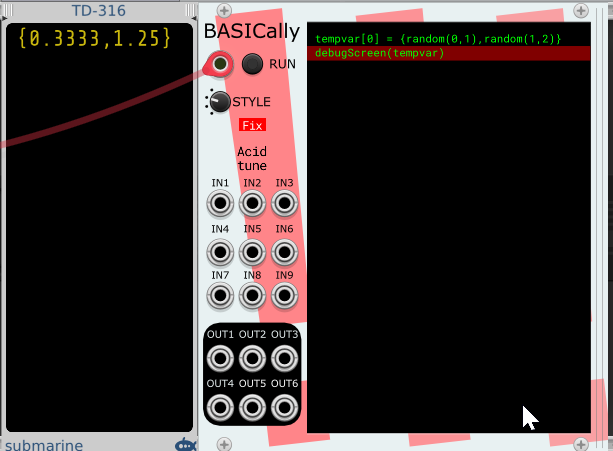Hopefully others will also share their thoughts.
Probably it’s the most practical.
tempvar[0] = {random(0,1),random(1,2)}
debug.print tempvar
' or even debugPrint(tempvar)
That was my original idea but a dedicated routine (like debugPrint) would help to specify the variable to be saved.
Khm… Actually yes. ![]() What about an extension screen on the left? Something like this:
What about an extension screen on the left? Something like this:

I didn’t think of this one but looks like a good idea. Like the clipboard is updated if the cursor is above the module. (Otherwise a routine like debugPrint() in one of the BASICally modules could create problems working with Ctrl-C and Ctrl-P in other modules.)
(I see Bruce’s post about the portable sequence protocol but I don’t think it would be feasible in case of BASICally.)
Nope.
Yes. Like “dump.txt”, or “debug.txt” in one of the standard folders.
I don’t think so.
… just once again: I realize that this isn’t the most important thing. Don’t waste much time on this idea if it seems to be problematic.
Your unutilized programming skills will always find something essentially useful. (Like customizable font size? ![]() )
)